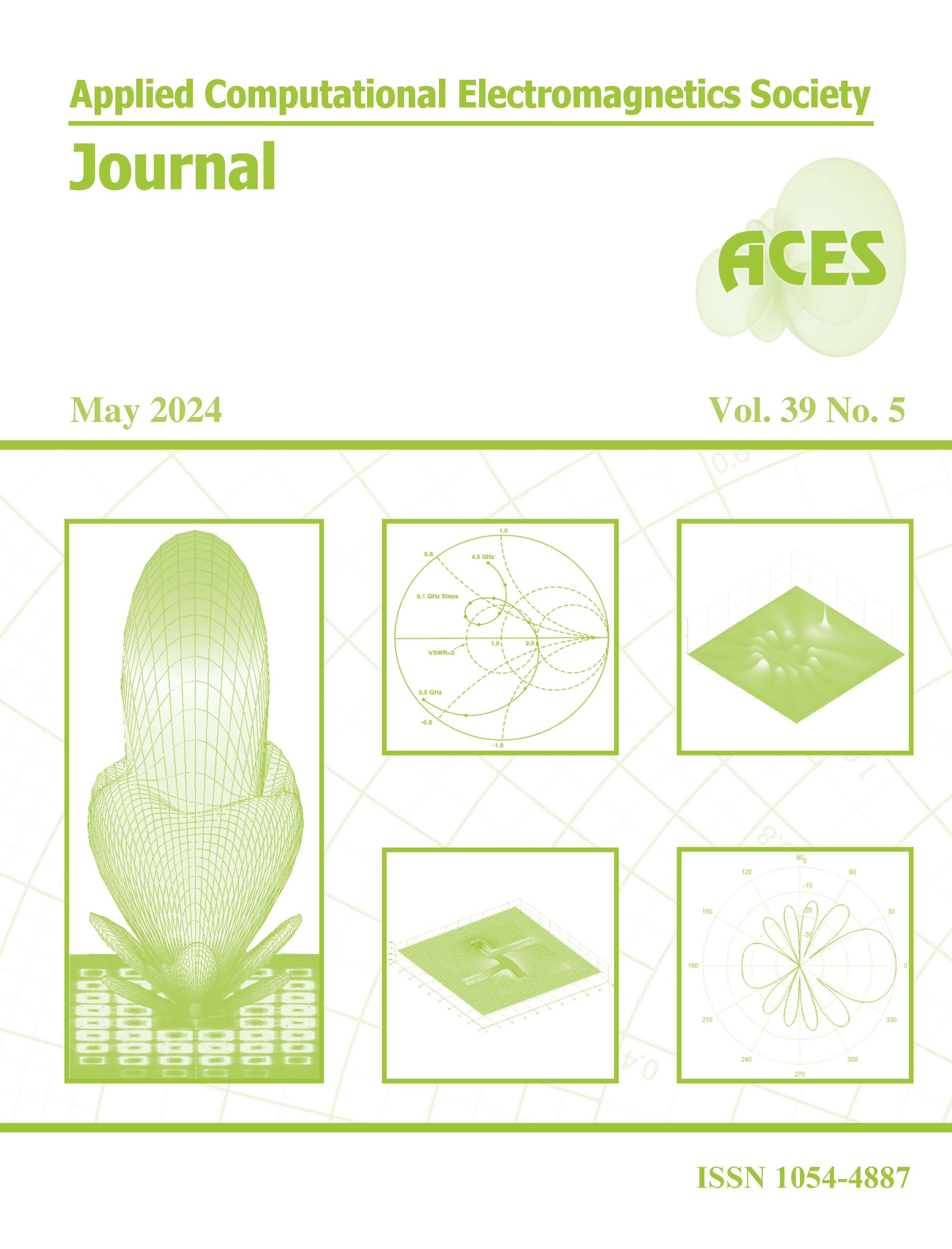An Approach to the Implementation of Laplace and a Broadband Helmholtz Fast Multipole Method as an Application Independent Library
DOI:
https://doi.org/10.13052/2024.ACES.J.390504Keywords:
Integral Equations, Fast Multipole MethodsAbstract
In this paper, we propose an approach to develop an application independent library of Laplace and Helmholtz fast multipole method (FMM) that can be used in different applications. For this purpose, we consider a generalized problem and a corresponding canonical problem (defined below). In the first main contribution, we show that it is possible to capture the essential characteristics of the canonical summation from sampling the values of certain potentials or signature functions. In the second main contribution, we show that partial derivatives of arbitrary orders acting on the far field can be represented as product of sparse matrices within the library, transparent to the user. Combining the two ideas, we show that once the FMM is configured to compute the canonical summation, the same setup can be used to work with a much wider, general class of problems.
Downloads
References
L. Greengard, “The rapid evaluation of potential fields in particle systems,” Ph.D. thesis, Yale University, 1987.
V. Rokhlin, “Diagonal forms of translation operators for the Helmholtz equation in three dimensions,” Applied and Comp. Harmonic Analysis, vol. 1, pp. 82-93, 1993.
W. C. Chew, J.-M. Jin, E. Michielssen, and J. M. Song, Fast and Efficient Algorithms in Computational Electromagnetics, chap. 9, Boston: Artech House, 2001.
V. Rokhlin, “Rapid solution of integral equations of classical potential theory,” Journal Of Computational Physics, vol. 60, pp. 187-207, 1985.
J. Carrier, L. Greengard, and V. Rokhlin, “A fast adaptive multipole algorithm for particle simulations,” SIAM Journal on Scientific and Statistical Computing, vol. 9, no. 4, pp. 669-686, July 1988.
V. Rokhlin, “Rapid solution of integral equations of scattering theory in two dimensions,” Journal Of Computational Physics, vol. 86, pp. 414-439,1990.
W.-J. He, X.-W. Huang, M.-L. Yang, and X.-Q. Sheng, “Massively parallel multilevel fast multipole algorithm for extremely large-scale electromagnetic simulations: A review,” Progress In Electromagnetics Research, vol. 173, pp. 37-52,2022.
F. W. J. Olver, D. W. Lozier, R. F. Boisvert, and C. W. Clark, NIST Handbook of Mathematical Functions, Cambridge: Cambridge University Press, Cambridge, 2010.
A. Messiah, Quantum Mechanics, New York: Dover Publications, Inc., 2014.
M. A. Epton and B. Dembart, “Multipole translation theory for the three dimensional Laplace and Helmholtz equations,” SIAM J. of Scientific Computing, vol. 16, no. 4, pp. 865-897, July 1995.
C. R. Anderson, “An implementation of the fast multipole method without multipoles,” SIAM Journal of Scientific and Statistical Computing, vol. 13, no. 4, pp. 923-947, July 1992.
T. Eibert, “A diagonalized multilevel fast multipole method with spherical harmonics expansion of the k-space Integrals,” IEEE Transactions on Antennas and Propagation, vol. 53, no. 2, pp. 814-817, Feb. 2005.
B. Dembart and E. Yip, “A 3D Fast multipole method for electromagnetics with multiple levels,” 11th Annual Review of Progress in Applied Computational Electromagnetics, Monterey, CA, vol. 1, pp. 621-628, Mar. 1995.
J. Phillips and J. White, “A precorrected-FFT method for electrostatic analysis of complicated 3-D structures,” IEEE Transactions on Computer-Aided Design of Integrated Circuits and Systems, vol. 16, no. 10, pp. 1059-1072, 1997.
J.-S. Zhao and W. C. Chew, “Integral equation solution of Maxwell's equations from zero frequency to microwave frequencies,” IEEE Transactions on Antennas and Propagation, vol. 48, no. 10, pp. 1635-1645, Oct. 2000.
B. Dembart and E. Yip, “The accuracy of fast multipole methods for Maxwell’s equations,” IEEE Computational Science and Engineering, vol. 5, no. 3, pp. 48-56, 1998.
J. M. Song and W. C. Chew, “Multilevel fast multipole algorithm for solving combined field integral equations of electromagnetic scattering,” Micro. Opt. Tech. Lett., vol. 10, no. 1, pp. 14-19, Sep. 1995.




